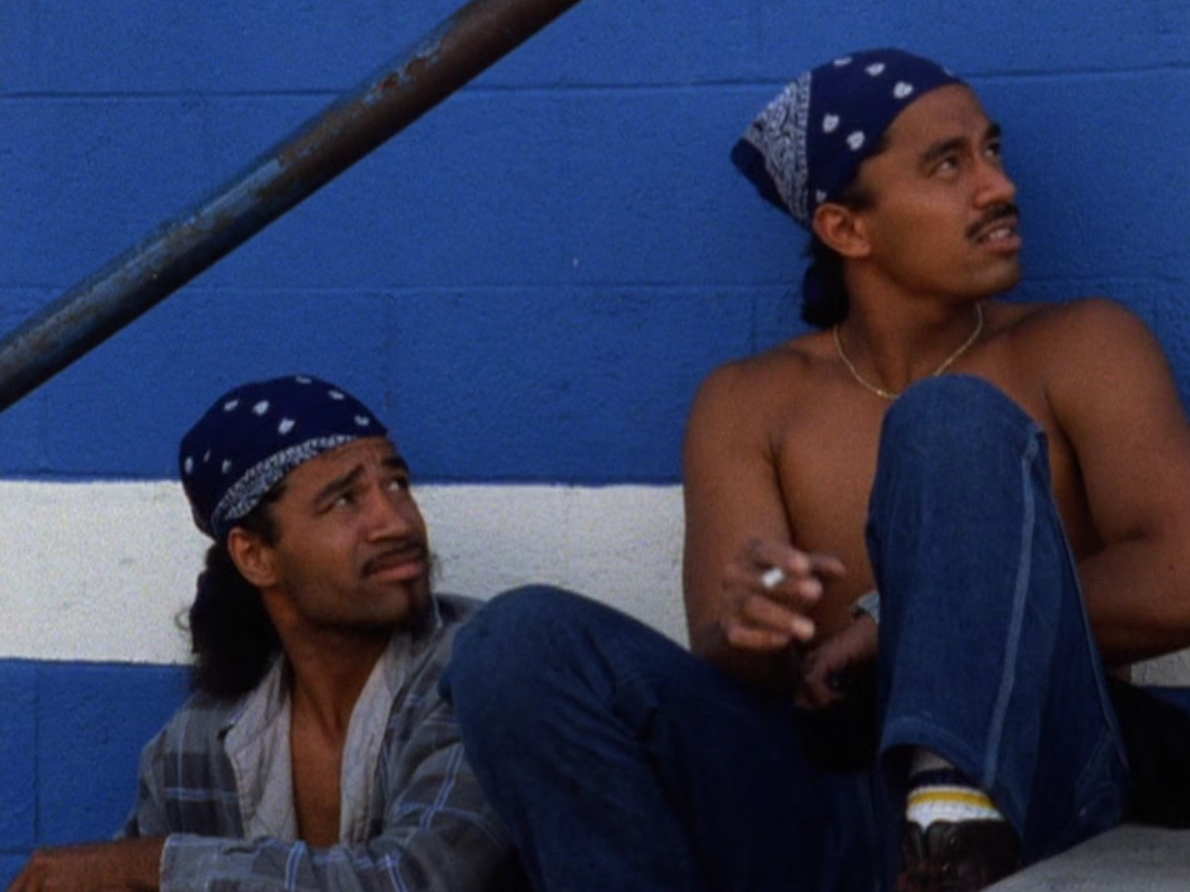
“These gangsters, Jerry. Do they hold as much mystery for you as they do for me?”1
“I don’t like the word ‘documentary,’ which tends to position reality in a static relationship to the filmmaker. I like the word ‘investigation’ because it stresses the effort of the filmmaker, the struggle with a reality that one experiences as problematic. There is an inherent drama for me in any attempt at thinking about anything and it is the pace of this ‘drama’ I am after. Thus the speculative nature of my films; the fact that they pile questions upon questions and tend to disqualify any answer as temporary; that they are full of false leads; that they are investigations which wander away from their own stated premises; that they proceed in fits; that, at their core, there is the stop-and-go motion of a mind trying to figure ‘it’ out. An ‘it’ which is always problematic, always shifting as the investigation progresses.”
Jean-Pierre Gorin2
“Motherfuckers are in the wrong fucking place. Fuck Margaret Mead. That’s M-E-A-D. BBC. PBS. All that National Geographical bullshit. I’ll tell you where it’s at. West Side S.O.S. Sons of Samoa, 32nd Street. That’s Long Beach, where the beaches are long. That’s where you go if you wanna make a movie. You go out toward that way.”3
“We don't believe that a film tells anything. A film is the telling. At a certain point in the film the transformation that you are focusing on should transform the film. Film history is full of films on madness, films on love, films on politics. But there is a considerable lack of mad films, love films, political films – where the subject of the film is being transformed into the flesh and blood of the film.
Take schizophrenic people: they are haunted by history, and so were Artaud and Bataille. They are driving back history on their own bodies. They are always in the process of tattooing history on their white skin, and when we make a film, the screen is only a white skin to tattoo.”
Jean-Pierre Gorin4
“The oil-and-water formula of Jean-Pierre Gorin’s new film, My Crasy Life, is only part of what makes it so provocative. Flippantly described by Gorin as ‘Robert Flaherty meets Sam Fuller,’ [...] the film’s significance runs far deeper than the debate over whether it’s fair and proper to script scenes in a documentary. My Crasy Life, which was financed by the BBC in association with FR3, seeks to empty itself of moral judgments about its subject: gang life. Since it does not present gangs as a social ‘problem,’ the film consequently poses no ‘solutions’ [...].
In discussing My Crasy Life, Gorin repeatedly mentions not a documentary but Luis Buñuel's fiction film Los Olvidados as a touchstone. That film is about Mexico City street kids and was based on stories Buñuel drew from reform school records. Los Olvidados is a film that Buñuel argued had a social argument but made no moral judgments. Likewise My Crasy Life departs from moral grandstanding. There are no good guys or bad guys. In this sense, the film is closer to how gangsters think about their own lives. ‘They think tragedy,’ says Gorin, ‘we think melodrama, with morality. They don’t judge their lives or indict the system; they just live them. I want a fiction disengaged from melodrama.’
Daniel Marks, one of the film’s producers and an anthropologist, adds that people never realize how normal gangster life is for gangsters. And yet despite the film’s absence of melodramatic framing, the film is not dispassionate. Says Gorin, ‘When you’re on the inside, you feel the warmth, the community. You don’t feel the violence.’ But there is violence aplenty, as the film indicates through its inclusion of police homicide photos showing some bloody hits. ‘The film avoids violence,’ Gorin noted at Sundance, ‘yet it gets to 99 percent of what their lives are about – which is young men talking like old guys who see the end of their lives coming up. ‘How old was so-and-so when he died?’ ‘Fourteen’; That’s the tragedy.’”
Barbara Osborn5
- 1Sergeant Jerry Kaono’s on-board computer in My Crasy Life (Jean-Pierre Gorin, 1992)
- 2Jean-Pierre Gorin in Lynne Tillman, “Jean-Pierre Gorin,” , April 1, No. 23, 1988.
- 3One of the Sons of Samoa in My Crasy Life (Jean-Pierre Gorin, 1992)
- 4Jean-Pierre Gorin in Christian Braad Thomsen, “Jean-Pierre Gorin interviewed: Filmmaking and history,” Jump Cut, no. 3, 1974, pp. 17-19.
- 5Barbara Osborn, “Spanky and Our Gang: Jean- Pierre Gorin's My Crasy Life,” The Independent, November 1992, Vol. 15, No. 9.

